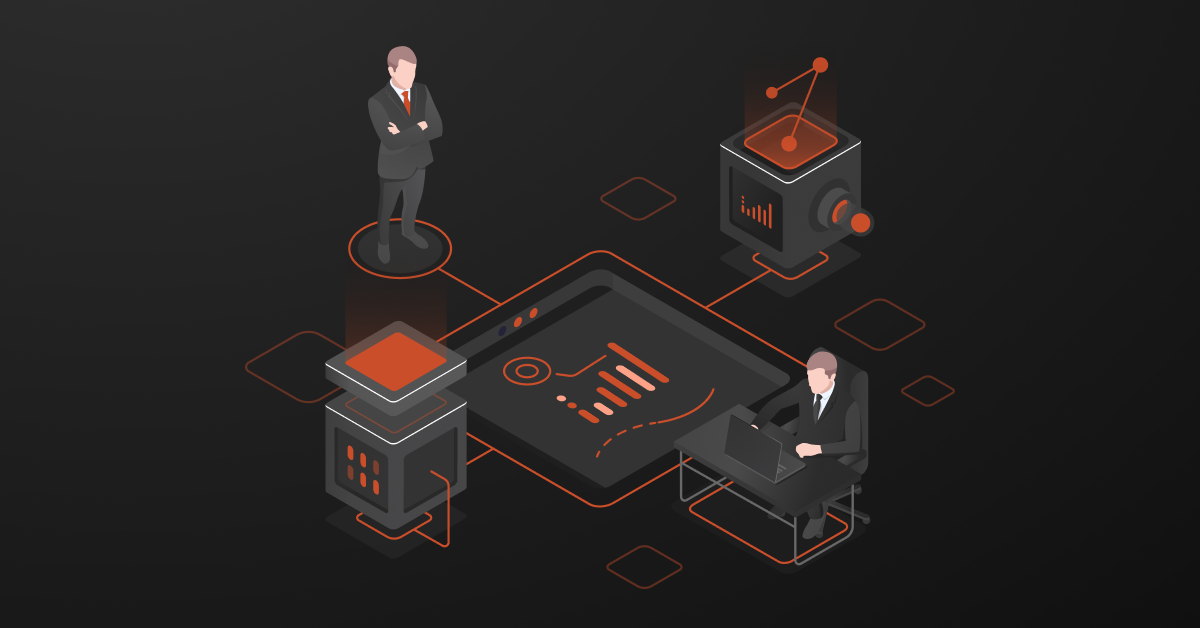Choosing an EvolutionX store for your ecommerce can bring in a lot of competitive advantages, especially if you are using complex ERP (Enterprise Resource Planning) systems. Its flexibility allows it to integrate smoothly with various ERP solutions, and today, we’re talking about Microsoft Dynamics.
Now, running an ecommerce business means juggling scheduling, inventory management, internal communication, accounts payable, and so much more. A lot of tasks indeed – but with Microsoft Dynamics EvolutionX Integration you can streamline your business processes and make yourself available for other important jobs.
Contents
Methods of Integration
Here are the two ways you can link EvolutionX with Microsoft Dynamics:
1. Enterprise Service Bus (ESB)
An Enterprise Service Bus (ESB) acts as a central hub for software in a company, helping them share data and messages smoothly. This is very much like a communications center that makes sure various applications can connect and work together in harmony, handling duties like directing messages, transforming data, and ironing out discrepancies between systems.
2. Integration Platform as a Service (iPaaS)
iPaaS is a service delivery model that exists in the cloud and enables a company to integrate its different software parts. It is something like a virtual box of tools connecting different apps, systems, and data sources, thus making it easier for them to exchange information and automate processes. With iPaaS, companies get a range of tools and ready-made connections to make data exchange and automation a breeze. You can read more about iPaaS here.
The main difference between the two is ESB solutions are often deployed on-premises within an organization’s infrastructure while iPaaS solutions are cloud-based and provided as a service. iPaaS solutions are mostly preferable because they require no internal expertise and are operated on the cloud.
Also read: The 2024 Guide to Microsoft Dynamics Integration For Distributors
Benefits of Microsoft Dynamics EvolutionX Integration
Here are the popular benefits of Microsoft Dynamics EvolutionX Integration:
1. Boosted Productivity
Once you have all of your business data in a single location, everything becomes easier to manage. No more wasting your time trying to find information among many places. Microsoft Dynamics EvolutionX Integration empowers your teams to focus on what is important instead of hunting for data. In addition, it automates some jobs and gives your employees more time for the stuff that really matters.
2. Happier Customers
When your team is more efficient, the customer service enhances too. With better CRM capabilities and automated processes such as payments and shipping, their shopping experience becomes smoother and faster. This means the customers are happy and will keep coming back for more.
3. Easier Access to Data
Microsoft Dynamics EvolutionX Integration gives you the ability to view all company data on one platform. And when it is integrated with your ecommerce platform, you get real-time updates on customer information, too. Having all this data at your fingertips helps you make smarter decisions faster and makes producing company reports easy.
4. Streamlined Processes
Integrating your Evolution X store with Microsoft Dynamics ERP makes managing your online business easier. From handling orders to tracking finances, it makes repetitive tasks automated and minimizes the chances of errors. All this increases efficiency, cuts down on lengthy processing times, and leads to happier customers.
5. Cost Savings
This integration saves you money by showing you exactly where your business is inefficient and how to fix it. Real-time inventory tracking means you will never overstock again, and each time it saves you time, it saves you money, too.
Also read: Microsoft Dynamics Magento Integration Explained
Best Practices of Microsoft Dynamics EvolutionX Integration
These are some of the best practices that will ensure the seamless integration of Microsoft Dynamics EvolutionX:
- Establish Clear Objectives: Clearly state your objectives of integration, be it enhancing order processing, inventory management, or increasing the effectiveness of the customer experience.
- Choosing the Right Integration Solution: An integration partner with relevant working experience is necessary for successful integration and should have the expertise to integrate the system.
- Customization for Business Processes: Ensure that the integration mirrors your unique business processes so that it smoothly integrates into your operations.
- Conduct Thorough Testing: Prior to going live, thoroughly test data synchronization, order processing, and other critical functions to identify and address any issues.
- Prioritize Data Security: Implement robust security measures, including encryption and access controls, to safeguard sensitive customer and business data during the integration process.
- User Training: Train your team on the effective use of the integrated system so that they can seamlessly understand new workflows and how to leverage its capabilities within Microsoft Dynamics EvolutionX.
- Scalability: Consider future business growth when designing the integration, accommodating increased order volumes and expanding operations within Microsoft Dynamics and EvolutionX.
- Backup and Data Recovery: Develop data backup and recovery processes within Microsoft Dynamics and EvolutionX to prevent data loss in the event of integration failures or system crashes.
- Monitor and Maintain: Employ monitoring tools that track integration performance, regularly review system logs, and address issues proactively.
- Provide Support Channels: Have a support plan in place to promptly address integration-related issues, offering multiple channels for assistance.
- Document Processes and Changes: Document the integration process, configurations, and changes made for troubleshooting and future updates.
- Stay Updated: Stay informed about updates and advancements within Microsoft Dynamics EvolutionX, regularly updating your integration solution to leverage new features and improvements.
Also read: Salesforce Microsoft Dynamics 365 Integration: A Complete Guide
Common Challenges of Integration
Some of the common difficulties that may arise during the integration process are here as follows:
1. System Complexity: Both Microsoft Dynamics and EvolutionX are powerful platforms with complex structures. Integration requires an in-depth understanding of their functionality and capabilities.
2. Data Synchronization: One of the really big difficulties is the synchronization of data between Microsoft Dynamics and EvolutionX, especially in cases when there is a large flow of information and in different formats.
3. Customization and Configuration: Every organization has specific business processes and requirements. So, the integration must be customized or modified according to the requirement, which is time-consuming and sometimes requires some specialized technical support.
4. Training and Adoption: Proper training and change management must be introduced when a new integrated system comes. Otherwise, employees are likely to resist the change and integration of the system. Resistance to change and unfamiliarity with the integrated system pose hurdles.
5. Cost and Resources: Integration of Microsoft Dynamics into EvolutionX takes time and other resources. Small businesses need to plan sufficient budget and manpower to implement the integration and then manage it.
Best Solution to Overcome Challenges – DCKAP Integrator
Out of many iPaaS solutions available in the market, DCKAP Integrator stands strong with its unique set of features and capabilities. It is specifically designed for distributors keeping in mind the challenges, distributors face during integrations.
DCKAP Integrator can handle the integration of Microsoft Dynamics and EvolutionX well because it has extensive experience working with them and some of its features act as a booster to level up the efficiency of the integration. Some of the top features that eliminate the challenges of integration are:
- User-friendly interface and no technical expertise needed
- Facilitates seamless data flow between the two systems
- Allows easy customization just as your business needs
- It has a low-code environment so no learning curve
- Transparent pricing plans have something for all business sizes
- Scalable, so you can always take advantage of the latest features
Bonus point: DCKAP Integrator has the capability to connect all applications, both on-premises or in the cloud. This means that whether it is Dynamics Nav or Dynamics 365, it can connect everything seamlessly. Here’s a case study you can refer to, that integrates EvolutionX with Dynamics Nav.
Additionally, we have a proactive support team to handle any challenges that may occur during the integration or later. So, what are you waiting for? Try out the demo today and let your systems talk together seamlessly.
FAQS
What is Microsoft Dynamics ERP integration?
Microsoft Dynamics ERP integration can be regarded as the interconnection of Microsoft Dynamics ERP systems with other business applications or databases with the purpose of smoothing out general processes, enhancing data flow, and improving overall efficiency. Such integration can include linking with CRM (Customer Relationship Management) systems, marketing tools, supply chain management tools, MySQL databases, and others.
How does Microsoft Dynamics ERP integration benefit users?
Business users benefit from integration by getting an integrated view of data across business applications, reducing manual data entry, saving costs, and minimizing errors, thus enabling better decision-making. It helps in the smooth flow of communication among the departments for better productivity and efficiency. For example, the integration of Microsoft Dynamics NAV with Microsoft Dynamics CRM. This provides the sales and customer service teams with real-time financial and inventory data to enhance interaction with customers and increase the effectiveness of sales.
How does EvolutionX ecommerce integration benefit large companies?
Large enterprises in retail, manufacturing, distribution, and finance will go a long way in benefiting from integrated EvolutionX by having a unified data management, better operational efficiency, and better customer experience. It allows for scalability, enabling these companies to handle large volumes of transactions and complex processes effortlessly.
What are some popular Microsoft Dynamics ERP products?
Microsoft Dynamics offers a range of ERP (Enterprise Resource Planning) products tailored to meet the needs of various businesses. Here are some of the most popular ones:
- Microsoft Dynamics 365 Business Central – Financial management, supply chain management, project management, manufacturing, and service management.
- Microsoft Dynamics 365 Finance – Financial reporting, budget planning, accounts receivable and payable, project accounting, and global financial management.
- Microsoft Dynamics GP (Great Plains)– Financial management, inventory and order processing, business intelligence, and human resource management.
- Microsoft Dynamics NAV (Navision) – Financial management, supply chain management, manufacturing, and project management.
- Microsoft Dynamics AX (Axapta) – Financial management, human capital management, production, and advanced supply chain management.
What is Evolution X?
EvolutionX is a prevalent B2B ecommerce platform from ECI Software Solutions, with the purpose of helping distributors, manufacturers, and wholesalers improve online sales. The platform supports a fresh, user-friendly interface that allows users to easily browse products, add items to their cart, and finalize purchases quickly and smoothly.
What are some common integration scenarios for EvolutionX?
Common scenarios of integration include integration with HR systems to manage the workforce, marketing tools for automated campaigns, and CRM systems to manage customer relationships.




